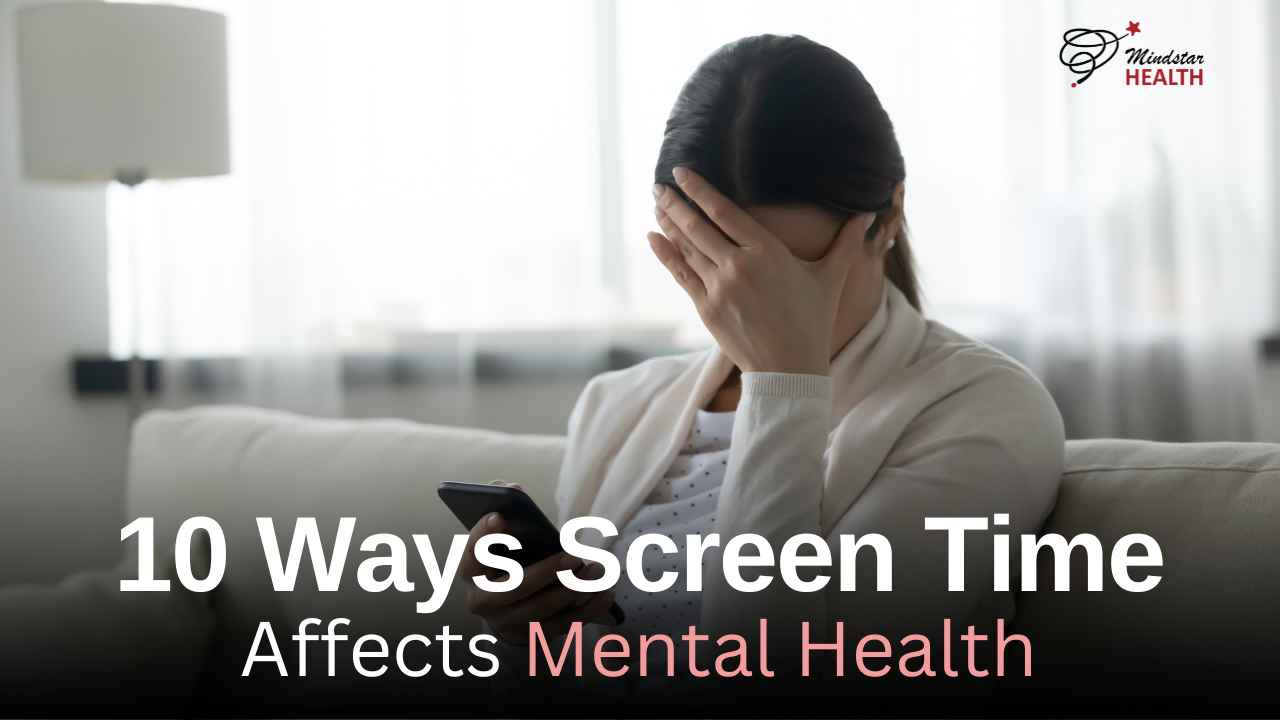Managing stress effectively is crucial for everyone, but for individuals with bipolar disorder, it can make all the difference in maintaining balance and preventing mood swings. Stress can be a major trigger for bipolar episodes, leading to manic highs or depressive lows. Understanding how to manage stress is an essential part of bipolar wellness, helping to reduce anxiety and maintain emotional stability. In this article, we’ll explore strategies such as bipolar stress management, mindfulness therapy, and cognitive behavioral approaches to help individuals with bipolar disorder lead healthier, more fulfilling lives.
The Importance of Bipolar Stress Management
Stress is one of the most significant triggers for mood swings in individuals with bipolar disorder. According to the International Bipolar Foundation, people with bipolar disorder are particularly sensitive to stress, and it can lead to more frequent and severe episodes. The impact of stress on bipolar disorder cannot be overstated, making bipolar stress management a critical aspect of maintaining emotional stability and overall bipolar wellness.
How Stress Affects Bipolar Disorder
Stress has a profound impact on bipolar disorder, influencing the brain’s neurochemistry and contributing to mood instability. The brain’s neurotransmitters, such as serotonin and dopamine, are crucial in regulating mood, and stress can disrupt their balance. These neurotransmitters are involved in emotional regulation, so when their levels fluctuate due to stress, individuals with bipolar disorder may experience significant mood shifts, including both manic and depressive episodes.
The Neurochemical Response to Stress
- Neurotransmitter Imbalance: High levels of stress can reduce serotonin levels and increase cortisol production, the body’s stress hormone. This imbalance can directly lead to heightened anxiety, irritability, and mood swings.
- Dopamine and Mania: In particular, dopamine, which is associated with pleasure and reward, is often linked to manic episodes. Stress can cause an overproduction of dopamine, leading to impulsivity, risk-taking behavior, and heightened energy levels—hallmarks of mania.
Impact on Bipolar Episodes
Research from the Journal of Affective Disorders shows that up to 70% of individuals with bipolar disorder identify stress as a significant trigger for mood shifts. Stress often leads to manic episodes in some cases, which may include behaviors like rapid speech, racing thoughts, and impulsivity. Conversely, in other individuals, stress can cause depressive episodes marked by feelings of hopelessness, lethargy, and an inability to find pleasure in everyday activities.
Managing stress through practices like Mindfulness Therapy, Cognitive Behavioral Therapy (CBT), and anxiety management techniques can help stabilize mood and reduce the frequency of stress-triggered episodes, leading to better bipolar wellness.
Why Stress Is Harmful to Bipolar Health
Stress plays a critical role in the onset and intensity of mood swings in individuals with bipolar disorder. Stress management is crucial to maintaining emotional stability, as it can directly impact the body’s natural rhythms, especially sleep patterns. Sleep disturbances are often the first sign that a mood episode is approaching, either in the form of a manic or depressive episode. Studies have shown that the disruption of sleep can significantly impact mental health, making it more difficult to stabilize moods.
Stress and Sleep Disruption
When the body is under stress, cortisol levels rise, which can disrupt sleep cycles. For those with bipolar disorder, this disturbance can trigger both manic and depressive episodes. Research published in the Journal of Affective Disorders found that up to 60% of individuals with bipolar disorder reported that sleep disturbances, such as insomnia or hypersomnia (excessive sleep), were a significant trigger for mood shifts.
- Lack of Sleep and Mania: Sleep deprivation has been linked to an increased risk of manic episodes. Studies suggest that even a single night of inadequate sleep can lead to impulsive behavior and heightened energy levels.
- Excessive Sleep and Depression: On the flip side, oversleeping can intensify depressive symptoms, leaving individuals feeling fatigued, unmotivated, and emotionally drained.
Impact on Bipolar Wellness
Managing stress through techniques such as Mindfulness Therapy and Cognitive Behavioral Therapy (CBT) can help regulate stress levels, improve sleep, and contribute to better overall bipolar wellness. According to a study published in Psychiatry Research, those who utilized CBT saw a 35% reduction in stress and mood instability. Moreover, Mindfulness Therapy has been shown to decrease cortisol levels and improve emotional regulation, significantly lowering the likelihood of mood episodes.
By addressing stress early and adopting stress-reduction techniques, individuals with bipolar disorder can maintain better control over their mood fluctuations and overall mental health.
7 Powerful Tips for Bipolar Stress Management
Bipolar disorder can bring profound challenges, particularly when it comes to managing stress. Stress is a common trigger for both manic and depressive episodes, making bipolar stress management a key component of maintaining stability. Effective management strategies can help individuals reduce the frequency and severity of mood swings and improve overall bipolar wellness. In this article, we will explore seven powerful tips for managing stress, including the use of mindfulness therapy, cognitive behavioral therapy (CBT), and anxiety management techniques, all of which contribute to a balanced, healthier life.
1. Understand the Impact of Stress on Bipolar Disorder
Understanding how stress influences bipolar disorder is the first step in effective bipolar stress management. According to the International Bipolar Foundation, stress is one of the most common triggers of mood swings in people with bipolar disorder. Research has shown that individuals with bipolar disorder experience higher levels of stress than the general population and that stress can make it more difficult to recover from mood shifts. A study published in the Journal of Affective Disorders found that individuals with bipolar disorder are particularly vulnerable to stress-induced mania and depression. When stress levels become overwhelming, it can lead to both emotional and physical turmoil.
Stress can trigger several physiological responses, such as an increase in cortisol levels, which can disrupt sleep and appetite regulation. Since disrupted sleep is one of the first signs of an impending mood episode, it’s crucial to learn to manage stress before it leads to a shift in mood.
By acknowledging the impact of stress, individuals with bipolar disorder can take proactive steps toward stress reduction, ensuring they maintain a better quality of life and reduce the likelihood of triggering mood episodes.
2. Practice Mindfulness Therapy to Reduce Stress
Mindfulness therapy has become one of the most effective tools in bipolar stress management. Mindfulness focuses on being fully present in the moment, cultivating awareness of one’s thoughts, emotions, and bodily sensations. Research has shown that mindfulness therapy can help reduce stress and anxiety, which are significant triggers for bipolar episodes.
According to a study in Psychiatry Research, individuals with bipolar disorder who practiced mindfulness reported a 30% decrease in stress and a 20% reduction in mood swings. Mindfulness practices such as deep-breathing exercises, meditation, and body scan techniques help lower cortisol levels, which is particularly important in managing bipolar wellness.
How to Incorporate Mindfulness Therapy:
- Daily Meditation: Set aside 10-15 minutes each day for guided meditation. Apps like Headspace or Calm are great tools for beginners.
- Mindful Breathing: Practice breathing exercises such as inhaling for four counts, holding for four, and exhaling for four. This can help manage immediate feelings of stress.
- Body Scan: Focus on each part of your body, starting from your toes and moving up to your head. This exercise helps you stay grounded and reduces anxiety.
3. Use Cognitive Behavioral Therapy (CBT) to Change Thought Patterns
Cognitive Behavioral Therapy (CBT) is a highly effective therapeutic approach for individuals with bipolar disorder. CBT focuses on changing negative thought patterns and behaviors that contribute to emotional distress. According to the National Institute of Mental Health, CBT can be particularly effective in managing anxiety management in people with bipolar disorder. The therapy helps individuals recognize and challenge irrational thoughts, reframe them in a healthier light, and adopt coping strategies that prevent stress from escalating.
A study conducted by the American Journal of Psychiatry found that CBT significantly reduced both depressive and manic episodes in individuals with bipolar disorder. The research indicated that participants who underwent CBT experienced a 40% reduction in mood episodes compared to those who did not receive the therapy.
How to Incorporate CBT:
- Identify Negative Thoughts: Keep a journal to track any negative or self-critical thoughts that arise during stressful situations. Once identified, challenge these thoughts by asking yourself whether they are true or exaggerated.
- Reframe Thoughts: Replace negative thoughts with more realistic or optimistic ones. For example, if you think “I can’t handle this stress,” reframe it as “I am learning how to manage stress better every day.”
- Practice Problem-Solving: When you encounter stress, break it down into smaller, more manageable tasks. This prevents overwhelm and allows for effective action.
4. Develop a Consistent Routine to Reduce Chaos
A structured routine is essential for bipolar stress management, as it helps prevent stress caused by uncertainty and chaos. Having a consistent routine can help regulate mood swings, reduce anxiety, and keep energy levels balanced. Dr. Aimee Daramus, a clinical psychologist specializing in bipolar disorder, suggests that a routine helps stabilize the biological rhythms of the body, such as sleep-wake cycles, meal times, and exercise.
A study in the Journal of Psychiatric Research found that individuals with bipolar disorder who followed a consistent daily routine reported fewer mood fluctuations and experienced greater emotional stability. The stability provided by a set routine can also help reduce the likelihood of stress-induced episodes.
How to Build a Routine:
- Sleep Consistency: Go to bed and wake up at the same time every day. Ensure that your sleep environment is comfortable and free from distractions.
- Scheduled Activities: Plan your day with designated times for work, relaxation, exercise, and social interactions. Having a balanced routine reduces stress.
- Medication Reminders: Set alarms or use apps to remind you to take your prescribed medications consistently. This helps maintain stability and prevents disruptions in mood.
5. Regular Exercise for Stress Reduction and Mood Stability
Exercise plays a vital role in bipolar wellness. Physical activity is known to release endorphins, the body’s natural “feel-good” chemicals, which can help reduce stress and anxiety. According to the American Psychological Association, regular exercise is an effective anxiety management tool and contributes to better overall mental health.
A study published in Psychosomatic Medicine found that individuals with bipolar disorder who engaged in regular physical activity had 50% fewer manic and depressive episodes compared to those who did not exercise. Exercise can also improve sleep quality, which, as mentioned earlier, is crucial in preventing mood shifts.
How to Incorporate Exercise:
- Find a Fun Activity: Choose an exercise you enjoy, whether it’s jogging, swimming, yoga, or dancing. Enjoyable activities are easier to stick with.
- Start Small: Aim for at least 30 minutes of moderate exercise, such as brisk walking or biking, three to four times a week.
- Set Realistic Goals: Begin with achievable goals and gradually increase the intensity or duration of your workouts.
6. Foster Social Support and Communication
Strong social support is essential for bipolar stress management. Having a reliable support system of family, friends, and mental health professionals can help individuals manage stress and cope with challenging emotions. Research from the University of California indicates that people with bipolar disorder who have strong social connections are less likely to experience severe mood episodes. In fact, social support acts as a buffer against the impact of stress, providing reassurance and encouragement during difficult times.
Additionally, open communication about stress and feelings can help prevent emotional buildup and offer opportunities for relief. Anxiety management becomes much easier when you have a trusted individual to talk to, whether through informal conversations or professional therapy.
How to Foster Social Support:
- Stay Connected: Reach out to friends or family regularly, even if just to check in.
- Join Support Groups: Participate in local or online support groups where you can share experiences and coping strategies with others who understand your journey.
- Seek Professional Help: Engage in therapy sessions with a counselor or psychiatrist who can guide you in stress management and provide valuable support.
7. Practice Relaxation Techniques for Immediate Stress Relief
Sometimes stress arises unexpectedly, and immediate relief is needed. Learning how to quickly calm yourself in stressful moments is crucial for bipolar stress management. Techniques such as deep-breathing exercises, progressive muscle relaxation, and guided imagery can help lower stress levels in minutes.
A study in Frontiers in Psychology found that individuals with bipolar disorder who practiced relaxation techniques reported a 25% reduction in anxiety and stress within the first month. Relaxation practices activate the parasympathetic nervous system, reducing the body’s stress response and promoting a sense of calm.
How to Practice Relaxation:
- Deep Breathing: Inhale deeply for a count of four, hold for four, and exhale for four. Repeat several times until you feel more relaxed.
- Progressive Muscle Relaxation: Slowly tense and release different muscle groups, starting with your toes and working up to your head. This technique reduces physical tension caused by stress.
- Guided Imagery: Close your eyes and imagine a peaceful, relaxing environment. Focus on the details of this place to help distract from stress.
Effective bipolar stress management is a crucial part of living with bipolar disorder. By understanding the impact of stress and adopting strategies such as mindfulness therapy, cognitive behavioral therapy, exercise, and strong social support, individuals can reduce the impact of stress on their mental health and maintain emotional stability. Incorporating these techniques into daily life can not only help reduce anxiety but also improve overall bipolar wellness. While managing stress can be challenging, with the right tools and support, individuals with bipolar disorder can lead balanced, fulfilling lives.
Techniques for Effective Bipolar Stress Management
Mindfulness Therapy for Stress Reduction
One of the most effective tools for bipolar stress management is mindfulness therapy. Mindfulness practices, such as meditation, yoga, and deep-breathing exercises, can help individuals manage their stress levels and stay grounded in the present moment. Mindfulness teaches individuals to observe their thoughts and feelings without judgment, reducing the emotional intensity that can contribute to anxiety and stress.
Research Findings on Mindfulness
Studies have shown that mindfulness techniques can significantly reduce stress and improve mood stability in people with bipolar disorder. In one study published in the Journal of Psychiatric Research, participants who engaged in regular mindfulness practices reported fewer mood episodes and less anxiety.
Cognitive Behavioral Strategies
Cognitive Behavioral Therapy (CBT) is another powerful tool in bipolar stress management. CBT helps individuals identify negative thought patterns that may contribute to stress and teaches healthier ways to reframe those thoughts. This approach is especially effective in managing the anxiety that often accompanies bipolar disorder.
How CBT Works
CBT encourages individuals to challenge irrational thoughts and replace them with more balanced perspectives. For example, someone who experiences anxiety about an upcoming event might learn to reframe their thoughts to reduce the stress they feel. CBT empowers individuals to take control of their mental health by changing the way they think about stress and anxiety.
Key Takeaways:
- Bipolar stress management is essential for maintaining emotional stability and preventing mood swings.
- Mindfulness therapy can help reduce anxiety and stress by encouraging present-moment awareness.
- Cognitive behavioral techniques teach individuals how to identify and challenge negative thought patterns, which reduces stress.
- Consistent self-care routines such as maintaining a regular sleep schedule, exercising, and engaging in activities that bring joy can further reduce stress.
- Bipolar wellness is achievable when combining stress management strategies with professional treatment and support.
At a Glance:
- Focus on Sleep: Keeping a consistent sleep schedule helps prevent mood shifts.
- Mindfulness Therapy: Techniques like meditation can reduce stress and improve mood stability.
- Cognitive Behavioral Therapy: Reshaping negative thoughts can lower anxiety and stress.
- Physical Activity: Exercise helps reduce stress hormones and promotes a more balanced mood.
FAQs
1. How does stress affect bipolar disorder?
Stress can trigger mood episodes in individuals with bipolar disorder, leading to manic or depressive states. Managing stress through healthy coping strategies is crucial for maintaining stability.
2. What is the best therapy for managing bipolar stress?
Mindfulness therapy and Cognitive Behavioral Therapy (CBT) are both highly effective in reducing stress and anxiety in people with bipolar disorder. They help individuals become more aware of their stress triggers and develop healthier coping mechanisms.
3. Can lifestyle changes help with bipolar stress management?
Yes, maintaining a regular sleep schedule, engaging in regular physical activity, and practicing mindfulness can all significantly reduce stress and contribute to better mood stability.
Conclusion:
Managing stress is an essential aspect of bipolar wellness. By incorporating bipolar stress management techniques like mindfulness therapy and cognitive behavioral strategies, individuals can significantly reduce the risk of triggering mood episodes. These practices, along with regular self-care and professional support, form a holistic approach to maintaining mental health. Remember, managing stress isn’t just about avoiding triggers—it’s about building resilience and finding balance in our everyday lives.
If you or someone you know is struggling with bipolar disorder, incorporating these stress management techniques can be an important step toward emotional well-being and stability. Reach out to a mental health professional to learn more about how these strategies can be tailored to your unique needs and circumstances.






















Leave a Reply
You must be logged in to post a comment.